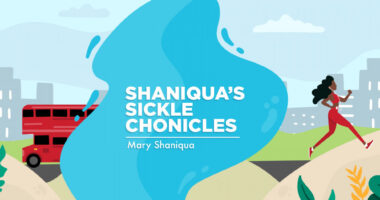Global Blood Expands Sickle Cell Study to Include Kids Ages 6-11

Global Blood Therapeutics has expanded its ongoing HOPE-KIDS 1 trial (NCT02850406), evaluating the investigative GBT440 in pediatric patients with sickle cell disease, to include a new single-dose cohort in younger children ages 6 to 11.
GBT440 is being developed as an oral, once-daily drug candidate for the treatment of sickle cell disease (SCD). GBT440 is designed to help hemoglobin — a protein found in red blood cells — carry more oxygen, keeping the red blood cells from becoming rigid and “sickled.”
Sickle cell disease affects hemoglobin, which carries oxygen throughout the body. The disease is caused by a genetic mutation in the beta-chain of hemoglobin, resulting in the formation of abnormal hemoglobin, called sickle hemoglobin (HbS).
Without oxygen, HbS has a tendency to polymerize, or bind together, within red blood cells, much like a sword within a balloon. This causes red blood cells to become rigid and elongated into a sickle shape instead of presenting their normally round and flexible shape. As a result, red blood cells can no longer flow properly in the bloodstream, reducing blood flow to organs and causing insufficient oxygen delivery to all body tissues.
The Phase 2a HOPE-KIDS 1 is assessing the safety, tolerability, pharmacokinetics and exploratory treatment effect of GBT440 in patients ages 6 to 17. The study is being conducted in two parts. Part A will include two cohorts of patients who will be given a single oral dose of 600 mg of GBT440. Patients ages 12 to 17 will be dosed in the first cohort, and children ages 6 to 11 will be dosed in the second group.
Part B will explore the safety of different doses of GBT440 administered in patients ages 12 to 17. The doses of 900 mg and 1,500 mg per day will be evaluated as consistent as those currently being administered in other Global Blood Therapeutics studies.
In addition to HOPE-KIDS 1, a Phase 3 HOPE study (NCT03036813) is underway to test GBT440 in sickle cell patients older than 12.
Both the HOPE-KIDS 1 and the Phase 3 HOPE trials are currently recruiting participants. For information on the HOPE-KIDS 1 trial, go to this site. For enrollment information on the Phase 3 HOPE trial, go here.
GBT440 is also being studied in two ongoing Phase 1 (NCT02285088) and a Phase 2 extension trial (NCT03041909).
“Following positive pharmacokinetic and safety results from the single-dose cohort of adolescent patients age 12 to 17, which were recently presented at the Congress of the European Hematology Association, we have dosed the first patient in a new cohort of younger children, age 6 to 11,” Ted W. Love, MD, president and CEO of GBT, said in a press release.
“We believe a new treatment option for SCD is desperately needed for patients of all ages and have designed our development program to generate data across age groups,” he said. “We anticipate data from this new single-dose cohort in younger pediatric participants later this year, which will help inform future GBT440 dose selections for continued evaluation in children.”
Both the U.S. Food and Drug Administration (FDA) and the European Medicines Agency (EMA) have granted GBT440 orphan drug designation for the treatment of sickle cell disease.
The FDA has also granted the drug fast track status and the EMA has included GBT440 in its priority medicines (PRIME) program.






